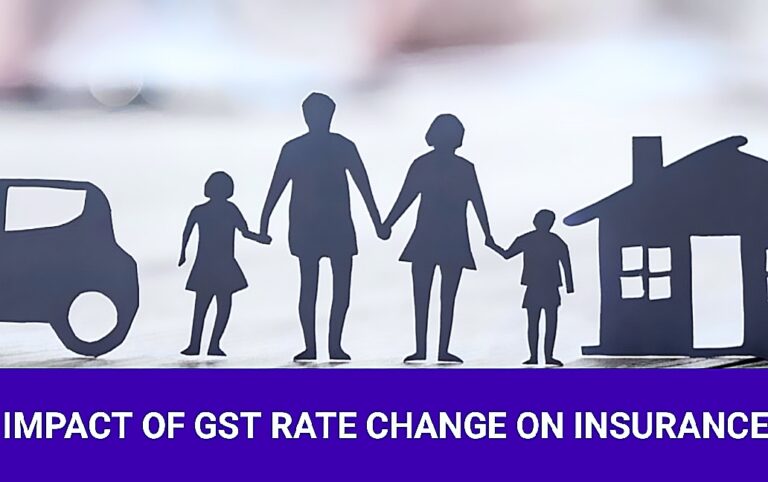The recent decision to exempt retail life and health insurance premiums from Goods and Services Tax (GST) has sparked interest among policyholders across India. On the surface, it looks like a huge win for consumers—after all, insurance premiums earlier attracted 18% GST. But before celebrating an 18% direct saving, it is important to understand how this exemption really works and why insurers may not pass on the entire relief.
In this article, we break down the GST exemption, its impact on policyholders, the role of Input Tax Credit (ITC), and what you should keep in mind while buying or renewing your policy.
GST Exemption on Insurance: The Big Announcement
The government has announced that retail life and health insurance policies will now be exempt from GST. This means individuals buying new policies or renewing existing ones after September 22, 2025, will not be charged the additional 18% GST on their premiums.
This move is aimed at making insurance more affordable, encouraging more people to opt for life cover and health protection. Since India continues to have a large underinsured population, this exemption could help bridge the gap in financial security.
Renewals and New Policy Purchases
- Renewals due before September 22, 2025: If your policy renewal falls before this date, GST will still apply. You won’t get any exemption benefit.
- Renewals after September 22, 2025: No GST will be levied, making the premium lighter on your wallet.
- New policies under the free-look period: If you have purchased a new policy and are still within the free-look cancellation period (usually 15–30 days), you may choose to cancel and repurchase it to take advantage of the GST exemption. However, check with your insurer before making such a decision.
The ITC Challenge for Insurers
While this exemption benefits policyholders on paper, insurers face a new challenge—loss of Input Tax Credit (ITC).
Earlier, insurers paid GST on their business expenses (such as marketing, technology, claims management, and administrative costs). They were allowed to offset this GST paid on inputs against the GST collected from policyholders. This mechanism kept their costs balanced.
Now that GST is no longer charged on premiums, insurers cannot claim ITC on their expenses. As a result, their overall operating costs may rise, and this could affect how much of the tax relief they actually pass on to customers.
How Much Will Premiums Really Fall?
While policyholders may expect a flat 18% drop in premiums, industry experts suggest a more realistic reduction of 12–15%. The reason is simple—insurers may absorb part of the ITC loss or even adjust their base premiums upward to protect profitability.
This means that while premiums will definitely become more affordable, the savings may not be as high as initially assumed. Still, a 12–15% reduction is a significant relief for individuals and families, especially those with large health insurance covers.
What Should Policyholders Do Now?
- Check your renewal date – If it’s close to September 22, see if postponing the payment is possible to take advantage of the GST exemption.
- Evaluate free-look cancellation – For newly purchased policies, assess whether canceling and repurchasing is financially worthwhile.
- Compare premiums – Once the exemption kicks in, compare quotes from different insurers to see who is passing on the maximum benefit.
- Look beyond GST savings – Premium is important, but so are claim settlement ratios, customer service, and coverage benefits. Don’t compromise on these aspects just for cost savings.
Final Thoughts
The GST exemption on retail life and health insurance policies is a welcome step that will make protection plans more affordable for millions of Indians. However, due to the loss of ITC, insurers are unlikely to pass on the full 18% benefit. Instead, policyholders can expect a 12–15% reduction in premiums.
For individuals, this is still a meaningful saving that reduces the cost of essential financial protection. Going forward, the exemption could also encourage more families to buy adequate health and life cover, strengthening India’s insurance penetration.
If you’re planning a renewal or a new purchase, now is the right time to review your options and make the most of this tax relief.
